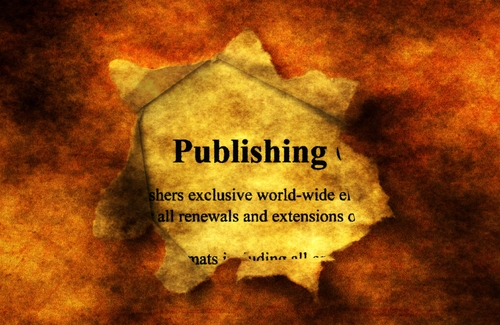Evaluating Publishing Contracts: Six Ways You May Be Sabotaging Yourself
Several years ago, a now-defunct literary magazine called The Toast gained notoriety by demanding that its writers surrender copyright. In the widespread discussion that followed exposure of this author-unfriendly policy, I was struck by the number of comments from writers who seemed to think that a bad contract clause was not so very awful if (pick one) the publication was great; the people who run it were great; the bad contract clause was not always enforced. (See especially the comments thread on The Toast’s still-surviving post about the controversy.)
That’s all very well. But this kind of thinking is exactly how writers get screwed: by making assumptions about a publisher’s intentions, by letting their emotions overrule their business sense, and by forgetting that, in the author-publisher relationship, the publishing contract is the bottom line.
These issues are as relevant now as they were years ago, if not more so (see, for instance, the ChiZine scandal, where authors accepted all kinds of abuse, including questionable contract language, because of the publisher’s then-stellar reputation). I hear all the time from writers who’ve been offered seriously problematic contracts and are using various rationalizations to convince themselves (sometimes at the publisher’s urging) that bad language or bad terms are not actually so bad, or are unlikely ever to apply.
Here are my suggestions for changing these damaging ways of thinking.
- Don’t assume that every single word of your contract won’t apply to you at some point. You may think “Oh, that will never happen” (for instance, the publisher’s right to refuse to publish your manuscript if it thinks that changes in the market may reduce your sales, or its right to terminate the contract if it believes you’ve violated a non-disparagement clause). Or the publisher may tell you “We never actually do that” (for instance, edit at will without consulting you, or impose a termination fee). But if your contract says it can happen, it may well happen…and if it does happen, can you live with it? That’s the question you need to ask yourself when evaluating a contract.
- Don’t mistake “nice” or “responsive” or “professional” or even “crazy about my work” for “author-friendly.” Remember, the lovely, enthusiastic editors you deal with when you submit your work probably didn’t create the contract (they may not even be fully aware of its provisions). It’s a sad truth of the industry that outwardly wonderful publishers can have shitty contracts. Don’t let your warm fuzzy feelings push aside your business sense.
- Don’t make assumptions about what contract language means. If you don’t understand the meaning of a clause, or aren’t sure about its implications, don’t guess. Get advice from someone qualified to provide it. (The publishing industry watchdog group I co-founded, Writer Beware, will gladly provide experience-based–not legal, we are not lawyers–contract commentary. Email us.)
- Don’t rely on your publisher’s assurance that objectionable contract language won’t be enforced. Your publisher may be telling the truth–at least, up to the point that they give you the assurance. But even if they aren’t just trying to get you to shut up and sign, circumstances may alter (what if management changes? What if the publisher sells itself?) and internal policies may shift. Oral or written promises that contradict contract language offer you absolutely no protection or guarantees (especially if your contract contains an entire agreement clause, which specifically invalidates any prior promises or representations). Never forget that by signing a contract, you are giving your publisher the full legal right to enforce it.
- Don’t accept your publisher’s claim that contract language means something different from what you think it means. This is a response you may receive if you attempt to negotiate changes, or bring a troublesome clause to your publisher’s attention. Your publisher may be correct: the misinterpretation may be yours. But your publisher may also be unscrupulous or ignorant (many small presses don’t properly understand their own contract language). If your publisher’s explanation doesn’t sound right, don’t just take their word for it. Get a second opinion.
- Don’t let your publisher convince you that asking questions is a bad thing. Dodgy or incompetent publishers don’t like pro-active authors, and may try to blow them off by claiming that asking questions is unprofessional, or ungrateful, or something similarly bogus. But asking questions is your right. Walk away from a publisher that discourages you from exercising it.
No contract is perfect. You should always be able to do at least some negotiation. But even under the most favorable circumstances, you’ll probably be giving something up. You may even decide to swallow an objectionable clause because of a great opportunity (I don’t know of any writer, including me, who hasn’t made this decision on occasion). If you do decide to sign a contract with unfavorable language, though, do so in full understanding of the possible consequences. Not in ignorance, or assumption, or fear of annoying the publisher by being too inquisitive.
I’ll close with an excellent tweet from author and editor Jane Friedman (if you aren’t following her, you should be):
Remember: contracts aren’t there for when times are good & everyone is well-intentioned. They need to work for you when things go to hell.
— Jane Friedman (@JaneFriedman) December 18, 2014
Words to live by.
